It is a gorgeous, warm, and sunny day in San Francisco when I meet with owner Charles Bililies and chef Tony Cervone at Souvla, their restaurant located right in the heart of bustling, idyllic Hayes Valley. Perfect weather for frozen Greek yogurt.
I’m greeted enthusiastically at the entrance. The restaurant is spotless, airy, and awash in soft morning light from the windowed entryway and expansive skylights above. Though the decor is minimal, modern and well-appointed, there is also something cozy and inviting about it. Perhaps it’s the smell of slow-cooked rotisserie chicken in the air, or the pleasant smiles on the faces of my hosts, but I am distinctly reminded of times fondly spent in the Greek Islands (a destination that I’ve been fortunate enough to visit many times, and holds a dear place in my heart).
This is not some kitschy shrine to the old country with faux antiqued walls, plastic ivy, and mediocre food. Here it is elegant and cool, and understated so that the food can take center stage. Above the entryway and repeated in the kitchen is a mantra, seemingly summarizing the entire philosophy of Souvla, which simply reads: “Make it nice, and be nice.”
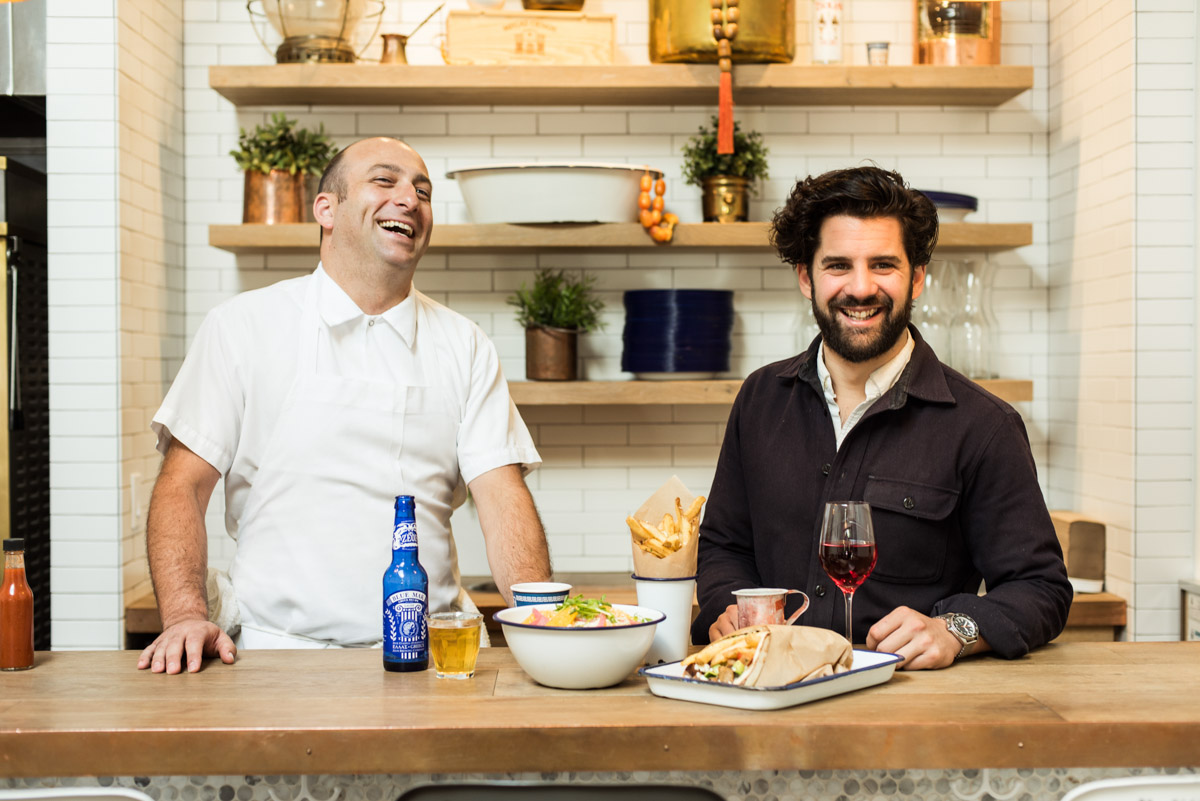
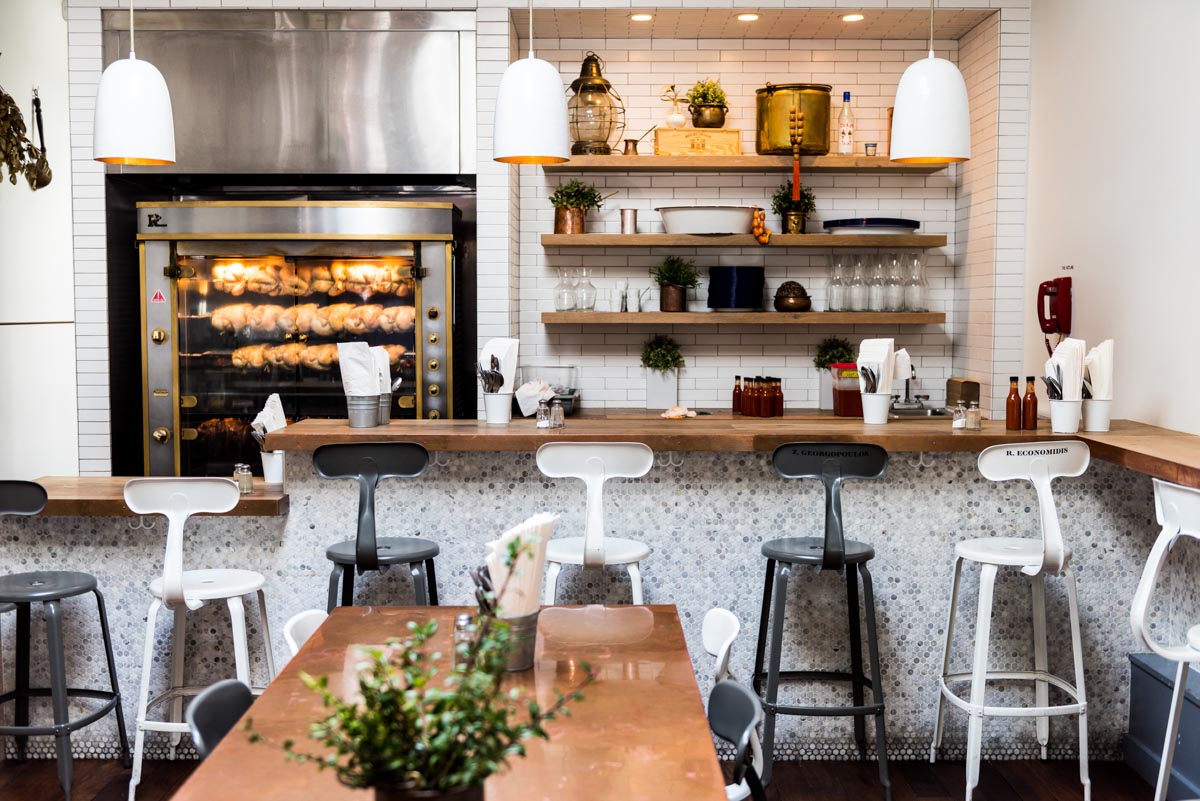
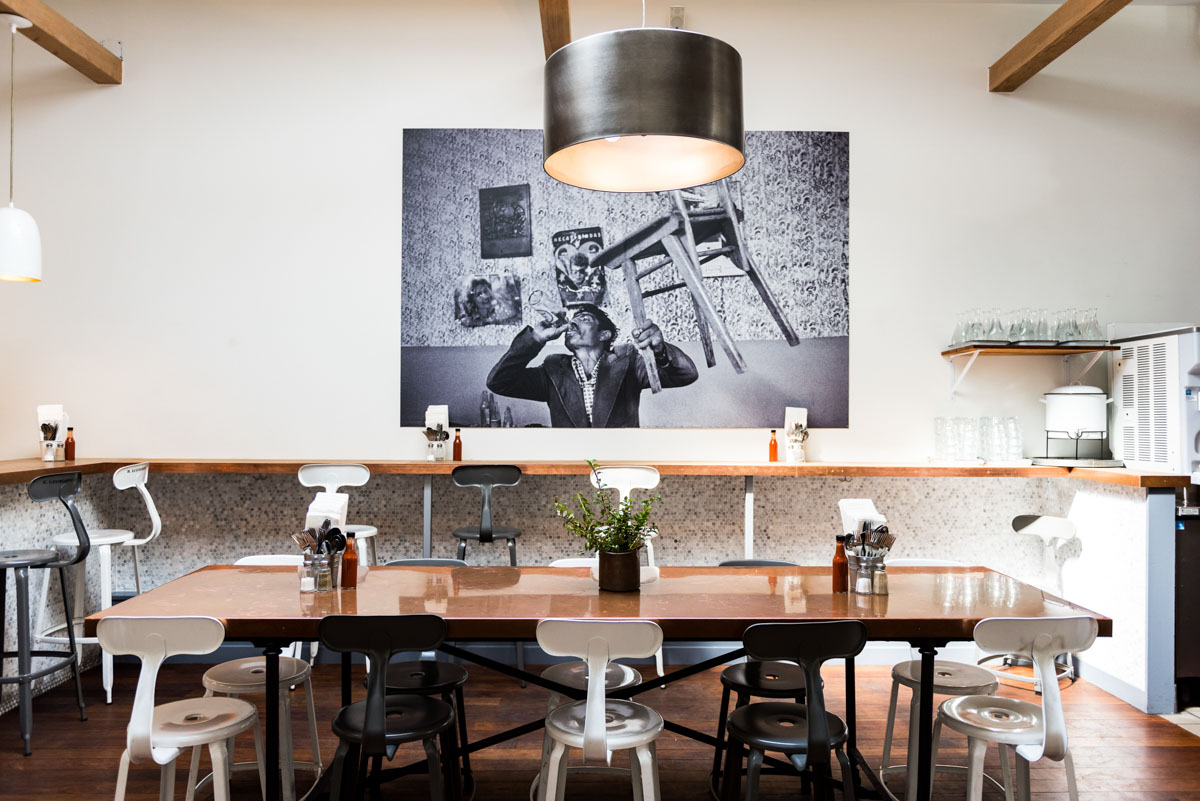
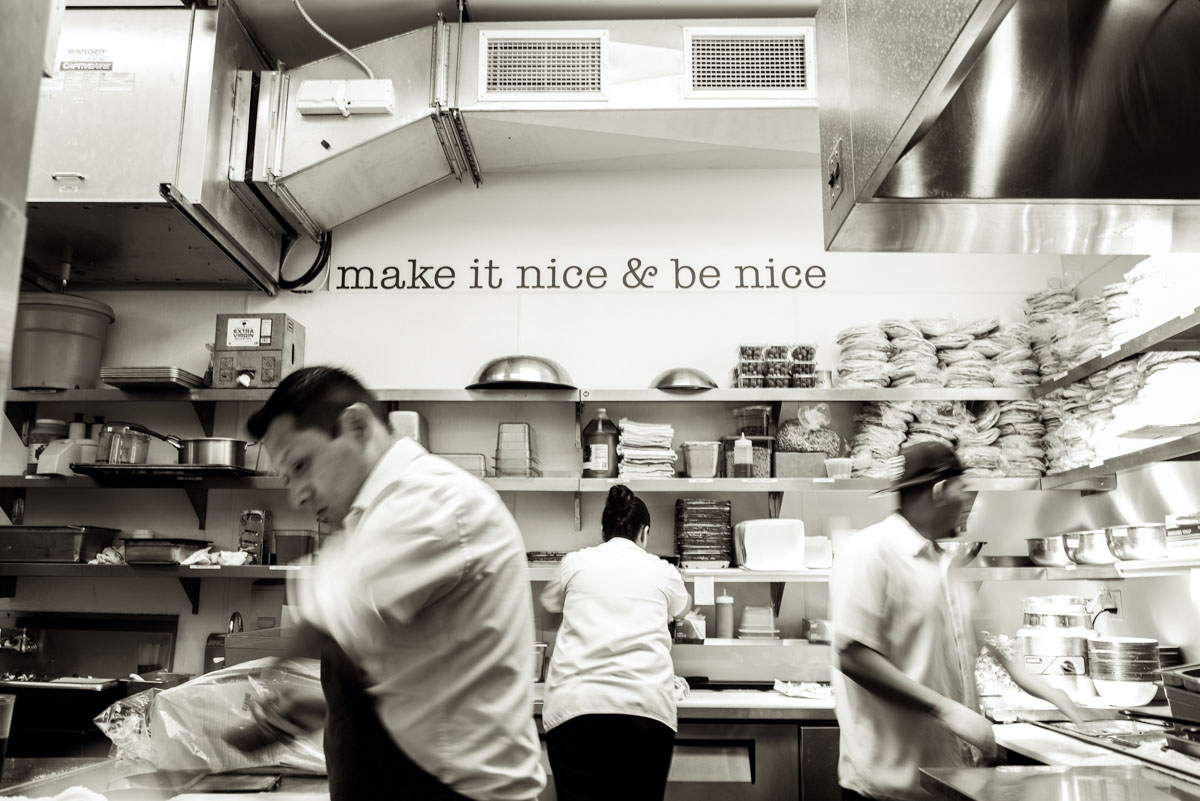
As we speak, it becomes clear that Bililies heeds this credo seriously, and that the qualities of thoughtfulness and craftsmanship are paramount to him. This goes for Souvla’s food, of course, but it is also infused in the way he treats customers, the care he has for his staff, the hand he’s had in designing the restaurant, and his passion for building something meaningful in the Bay Area’s food community.
It is the stuff of life. And I think we would all do well to remember more often to “Make it nice, and be nice.”
Can you tell me how each of you got started in restaurants?
Cervone: I always loved cooking and food. I started cooking at seventeen, bussing tables in Napa. I’ve always simply liked hosting and serving people and making good food. I didn’t go to formal culinary school.
Bililies: For me it’s similar in the sense that cooking and being in restaurants is a family thing. Both of my grandfathers ran restaurants for many years; one was in Greece. The irony is, when I was younger I made a pretty conscious effort not to get into the restaurant business, but it just ended up being the only real thing that I actually loved to do. So after my first year in conventional college I transferred to culinary school at Johnson and Wales and began working for a restaurant group called Legal Sea Foods. I went back for a business degree at Cornell’s school of hotel management and then moved to California. I had the great privilege of working for some awesome, critically acclaimed chefs like Thomas Keller and Michael Mina.
And you two met working at Kokkari together, is that right?
Kokkari is a long-standing fine dining Greek restaurant in San Francisco that has consistently received rave reviews from critics and diners alike.
Bililies: At Kokkari, I was moonlighting in some respects. Souvla was already underway––the business plan had been written, and I was seeking investors and looking at spaces. I needed to gently back out of my more formal role in restaurant management positions so that I could be more transparent about what I was doing. So I left RN-74 where I was the assistant general manager. I disappeared to Greece for both some R&R and R&D. Afterwards, I got a job waiting tables at Kokkari which allowed me the freedom and flexibility to take meetings, hold events, pitch investors––and also be pretty upfront with what I was planning.
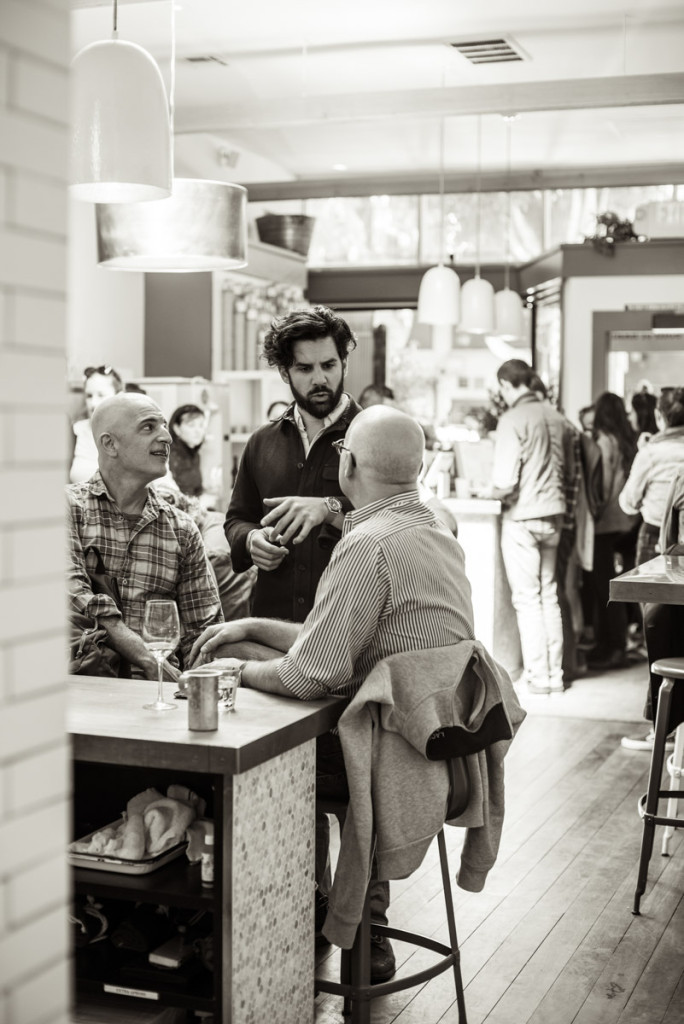
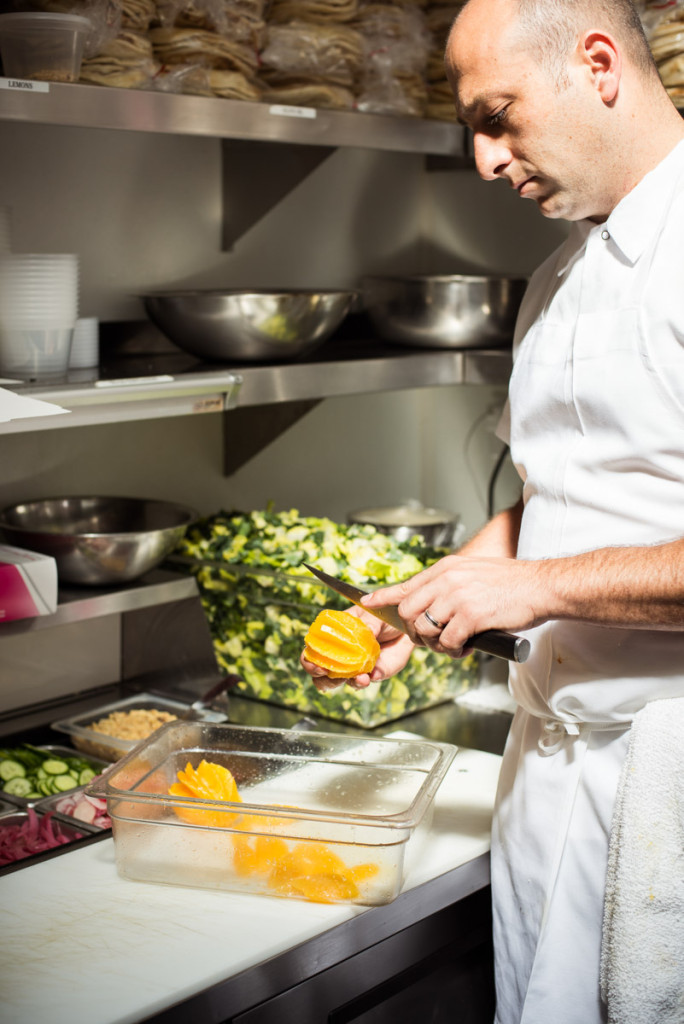
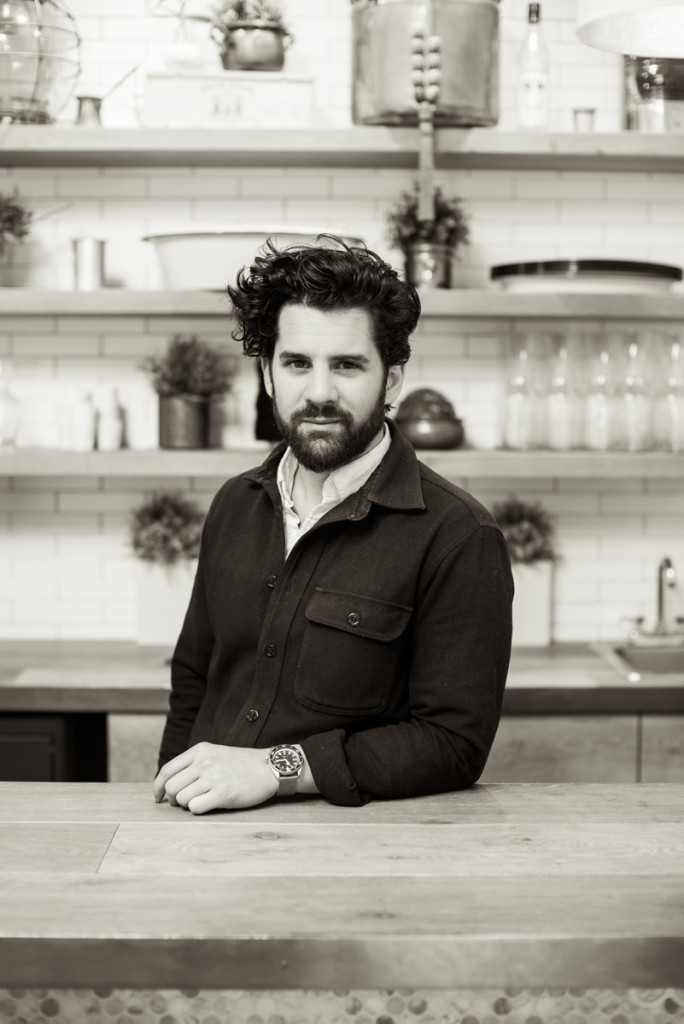
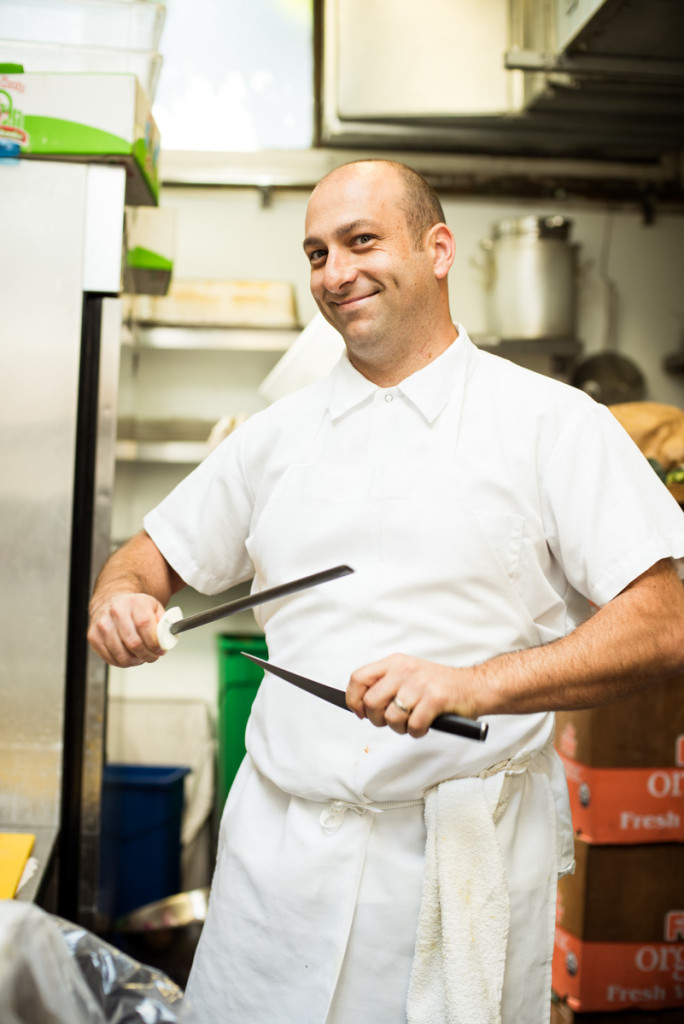
Tell me about how your Greek family origins inform your cooking style?
Bililies: I am Greek-American on both sides. My mother grew up outside Athens and my father’s grandparents came over from the western part of the Peloponnese. I grew up outside Boston. For as many of the traditional pieces of the culture that we retained––even in relation to the church and holidays––I also had parents who wanted us to be “normal american kids.” So I have an interesting relationship with my Greek heritage in the sense that I’m American but that I obviously have strong ties to my Greek roots. Souvla is a reflection of that. It is clearly Greek to the average person, but we’ve also made a big effort to do it in way that is super approachable, fun, and a bit more modern, and to take advantage of the situation; we don’t have to follow any rules of the old country. We truly set out to change the American perception, so through that we get to be creative and pull bits and pieces from Greek cuisine, but also our environment and setting here in California.
Charles, I understand that you actually designed the entire space of Souvla as well.
Bililies: If I wasn’t doing restaurants, my alternate career would have been architecture or design. I’ve always had an interest in those fields. Prior to opening, we planned for five years; thinking, envisioning, re-imagining, and evolving. The design aesthetic component of the space is a critical piece for us in creating this new subcategory of dining called “smart casual”. Everyone is familiar with fast-casual, quick-service and full-service. With Souvla, you see the smart casual attributes in effect, both aesthetically and how people interact in the space itself.
We wanted to create a space that was truly unique to Souvla. You see a lot of restaurant trends in a city like San Francisco and many of these new spots start to look alike. We are coming off a big phase of reclaimed wood, concrete and Edison bulbs, so we wanted to capitalize on the fact that this is a Greek place and bring in some of the real rustic, island feel and those elements without it being kitschy. So many Greek places you see [here in the United States] are cheesy.
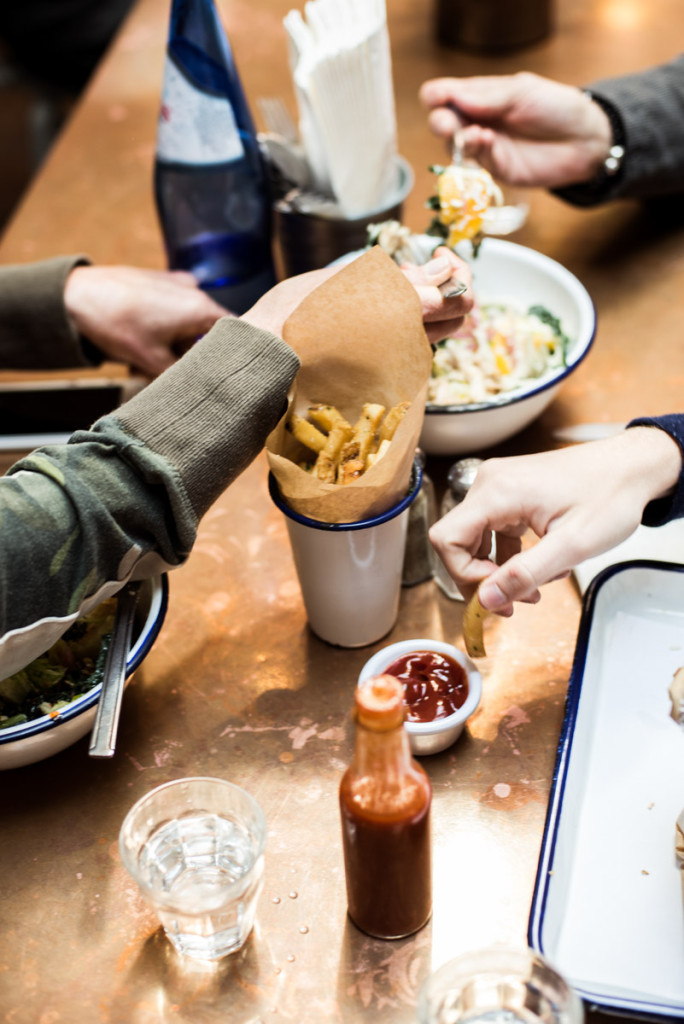
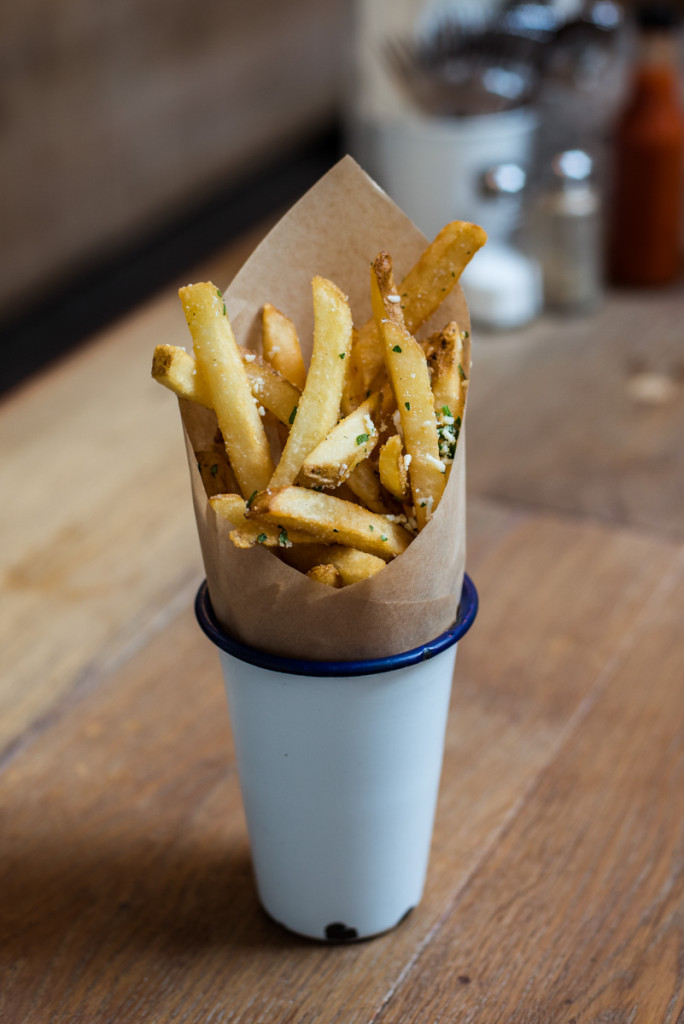
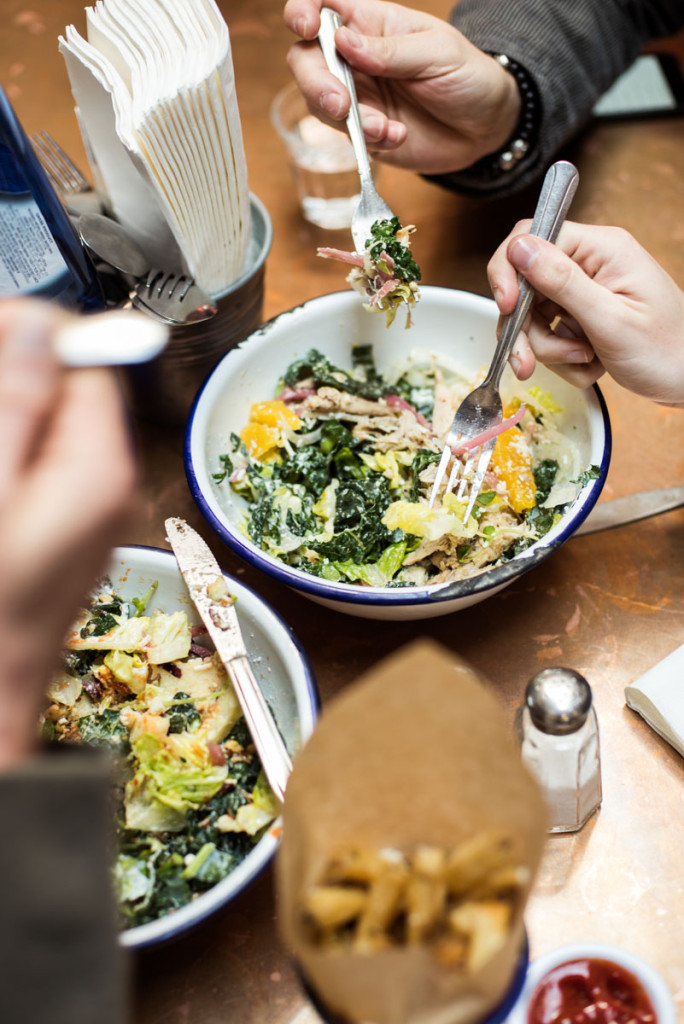
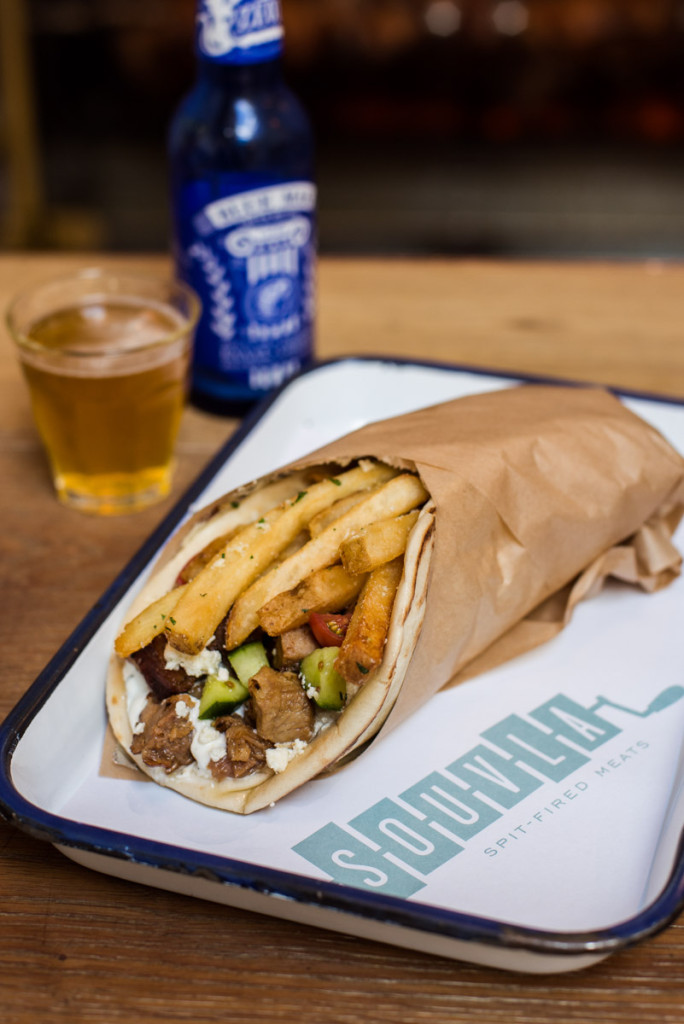
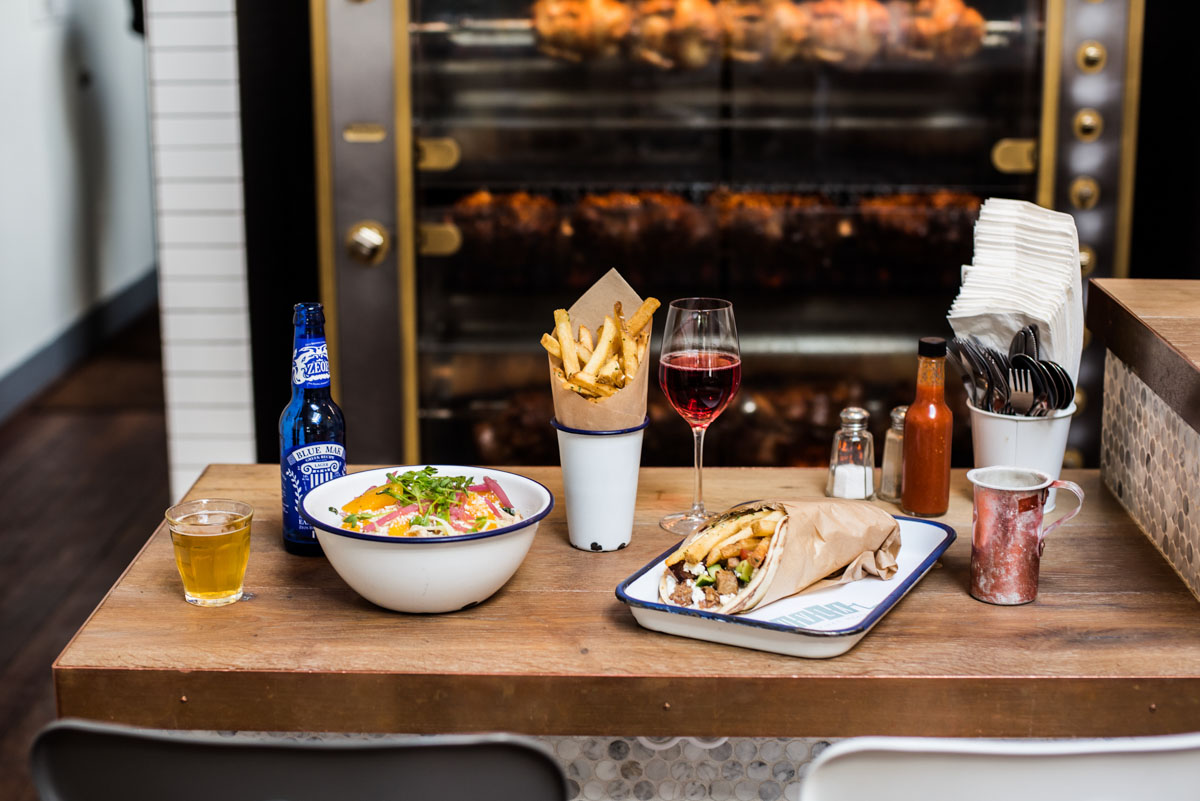
Some of them seem as if they are literally trying to replicate the old crumbling buildings and worn patina of restaurants on a Greek island, but in some faux-plaster way, which never goes well.
Bililies: You really can’t replicate it. There is no substitute for the history and real antique quality that you encounter on the islands, so we wanted to combine the elements that would translate––some original artifacts, and of course impart our own sense of style and modern take. For instance, many other decor elements are actually from my grandfather’s restaurant in Greece, which he ran from the late 50s to mid 70s.
I noticed the Komboloi, the Greek worry beads…
Yeah, so we have little nods to the islands as well, including the Greek coffee cup which we use here.
Which leads us to the drink menu. How did you develop it?
Bililies: The beverage program is entirely Greek, top to bottom. Greek wine is a personal passion; at Souvla, our approach is such that people are going to drink Greek wine, whether they want to or not. It really aligns with the whole ethos of doing one thing and one thing well. We offer wines by the glass, which we serve in the traditional Greek carafes. The list is simply a sparkling, a white, a rosé and a red, and we have one beer. The iced tea, the sparkling sodas and the sparkling water are all Greek as well.
We do have a more expansive full bottle wine list. If you want to explore the Greek wines further, you can. It’s a way to introduce people to Greek wine, but in a simplified way where they don’t have to know how to pronounce a Moscofilero or Assyritiko. They can approach it easily and try it out first. In another restaurant, they would probably be hesitant to order a Greek bottle of wine because they don’t know the varietal, or they don’t have an idea of what to expect, or never had it before. We’ve had a great reception to it.
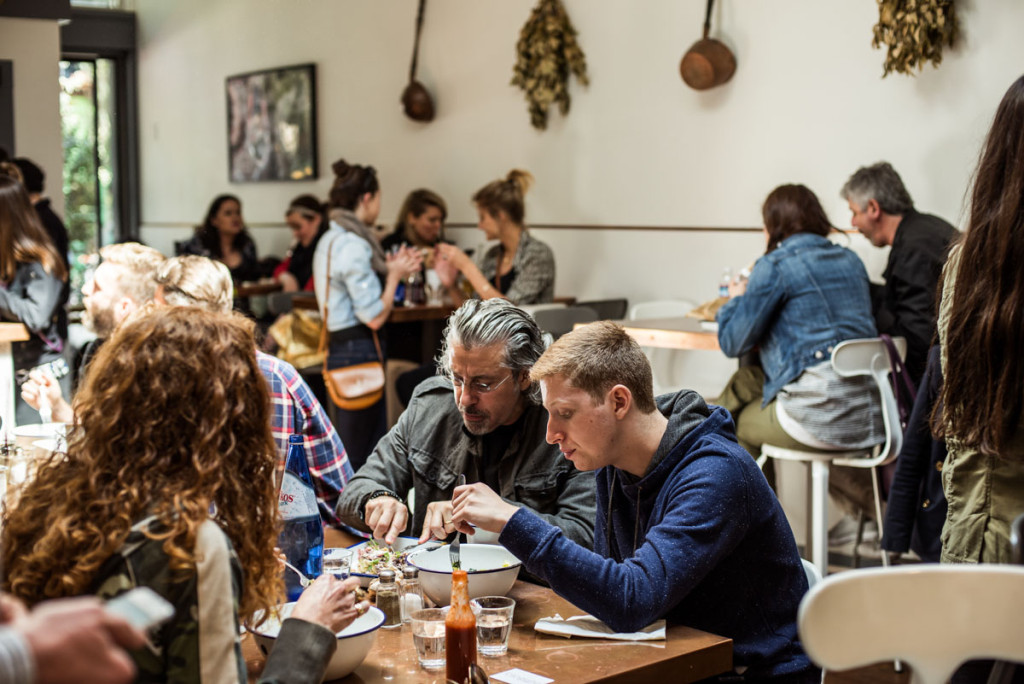
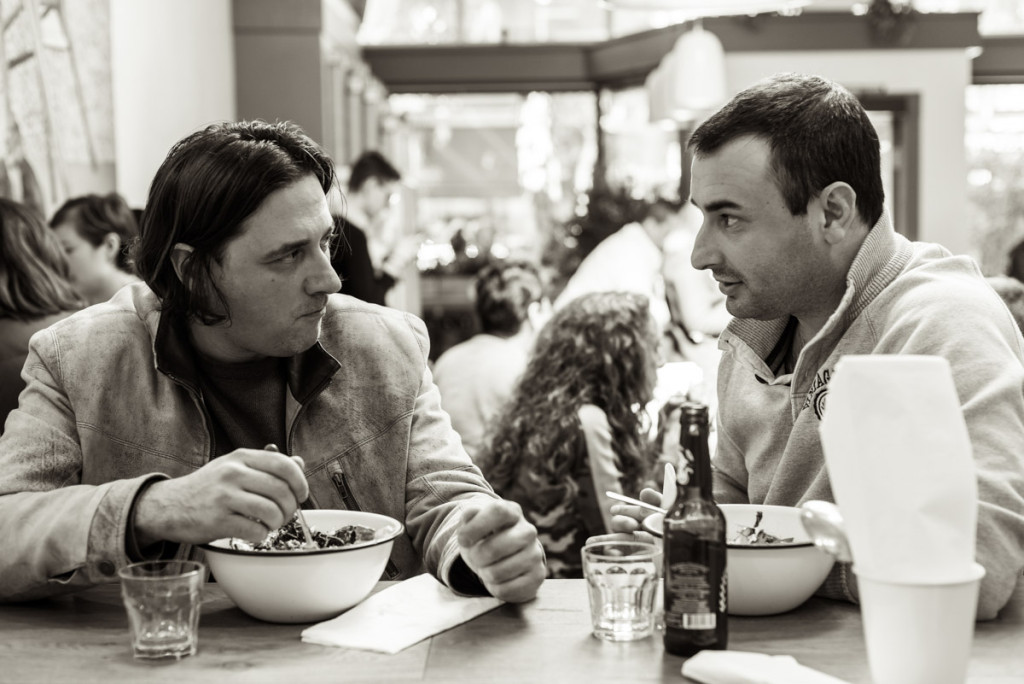
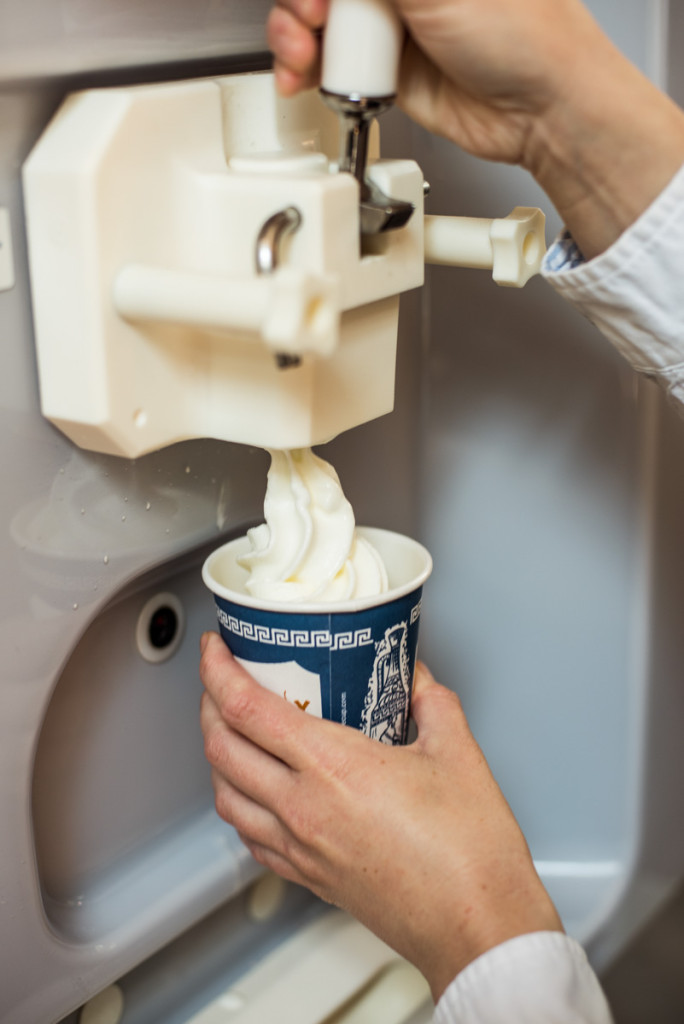
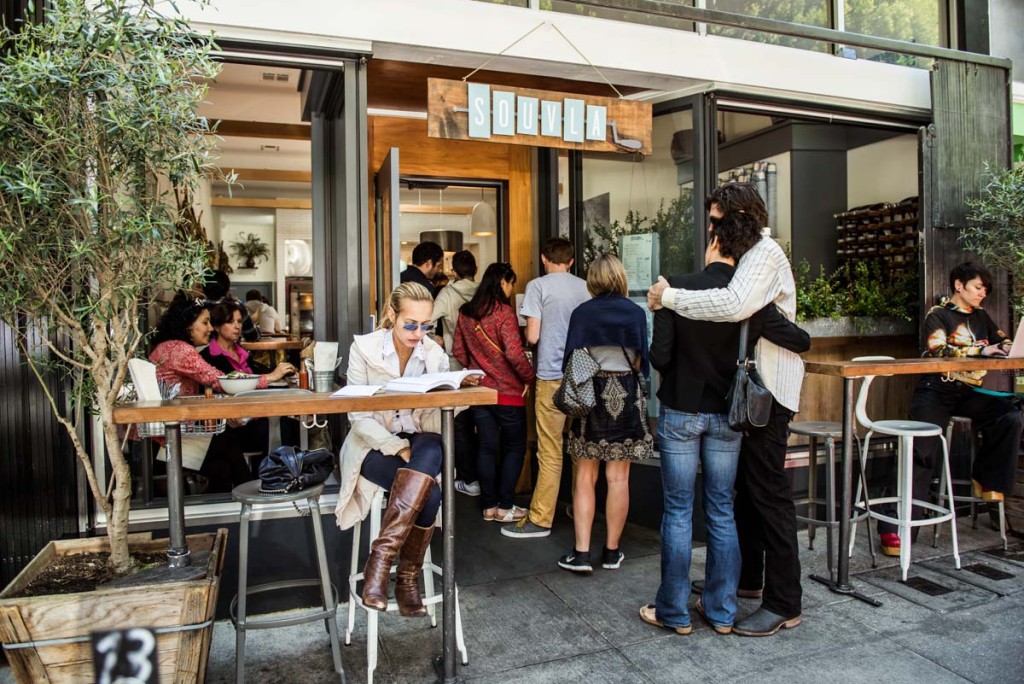
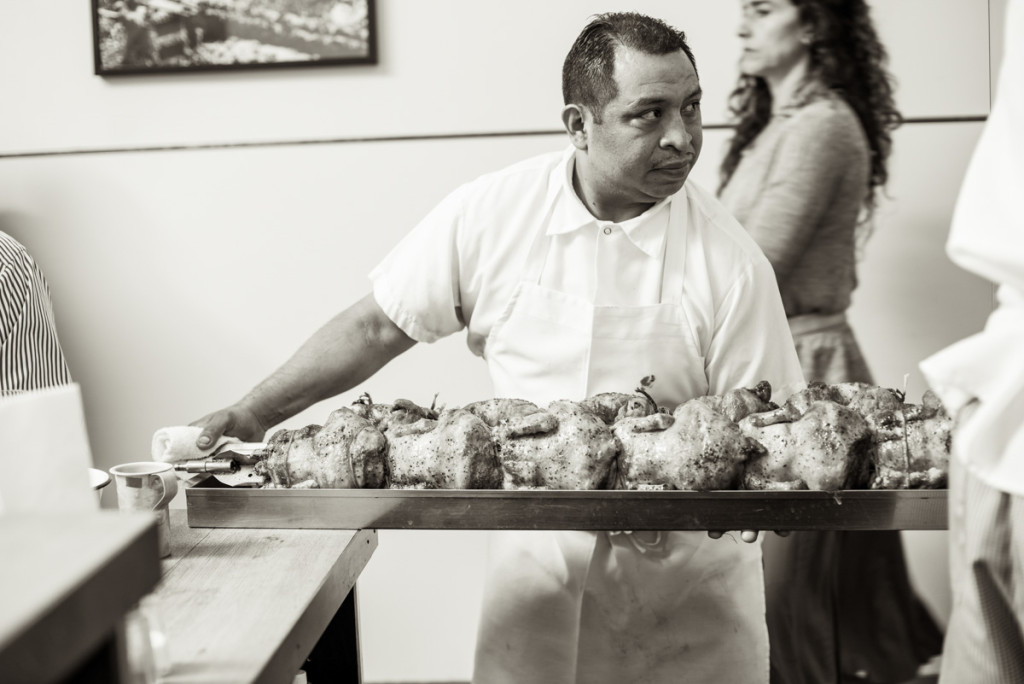
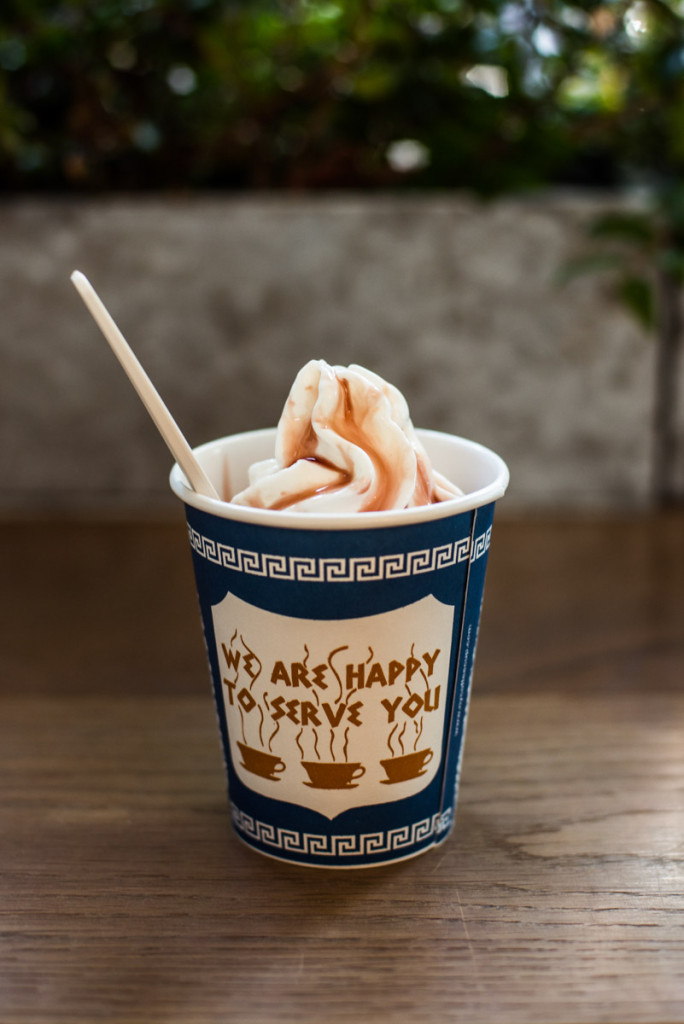
What do you think about the San Francisco food community overall, and what makes it a unique place to own a restaurant as opposed to other cities?
Bililies: I would say that the San Francisco restaurant scene is one of the most supportive and tightly knit communities that I’ve come across in my professional career. We’re very fortunate that we operate a concept that chefs love to come to on their days off. We have a really nice industry following. Mondays and Tuesdays this becomes a kind of chef hangout. Because Tony and I have had a lot experience in high end, full-service industry, we happen to know a lot of the folks that come in as well.
Cervone: It’s very cliché, but the availability of produce we have here is off the charts, as is the way meats are being raised. People are putting their entire careers into how to raise quality meat from the very beginning. Our chickens and lambs are from right here in northern California. Overall, I find the community a very supportive one, and not only that but everyone is having fun. You go to an event and it’s not uncommon to see a lot of hugging. There really isn’t any nasty competition.
Bililies: We do a lot of charity events where we’re among our peers in the restaurant industry, working shoulder to shoulder. Everyone there really gets along well. It’s a group that’s super supportive of one another, willing to help out, pitch in, and to connect. I definitely don’t see any animosity or direct competition. There is a prevailing attitude that we are all in this together. Honestly it’s not an easy business to be in, so to have that level of support is wonderful. It’s really great to be in a group that wants to give back, and to have the good fortune to help others out that are trying to get their projects going—paying it forward—we’re glad to play a part in helping out the next generation of cooks, restaurateurs, sommeliers, and the like, and help them realize their vision.
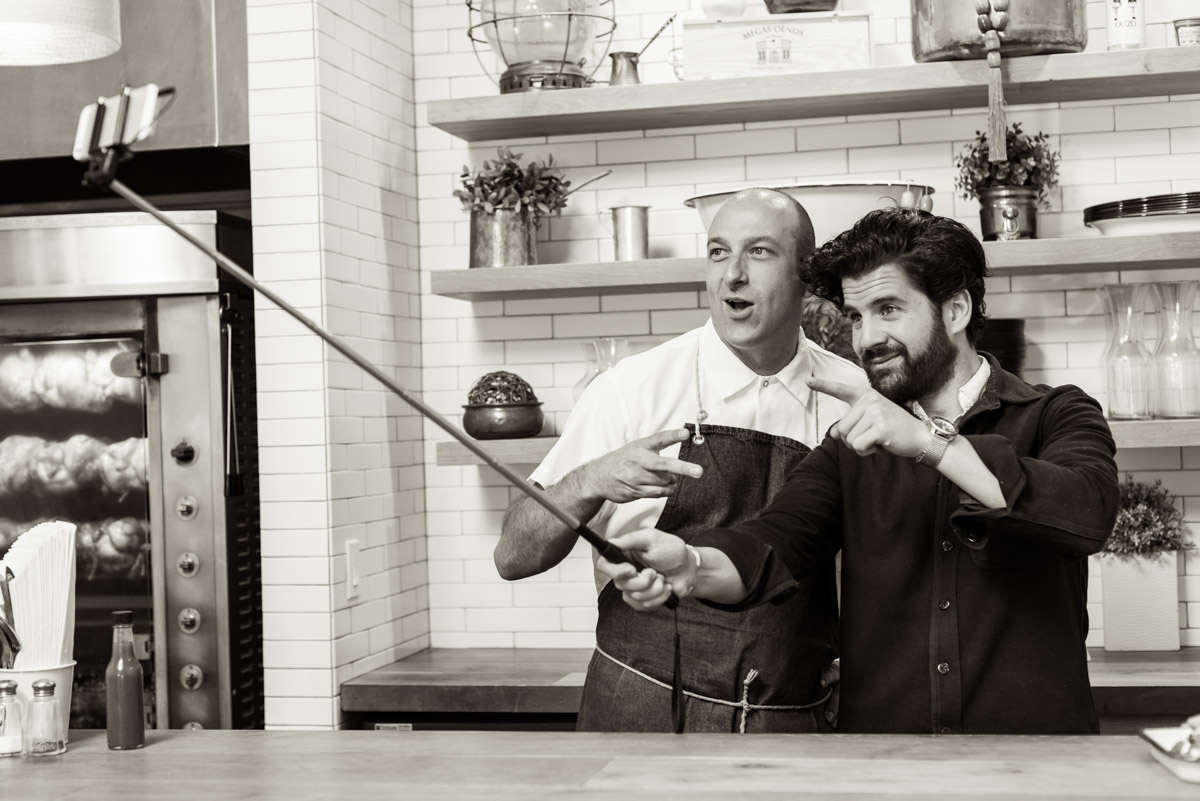
—
So, make it nice, and be nice. And teach others to do the same. Souvla’s motto is a good one for both the food industry, and for life.
—
Souvla
517 Hayes St, San Francisco, CA 94102





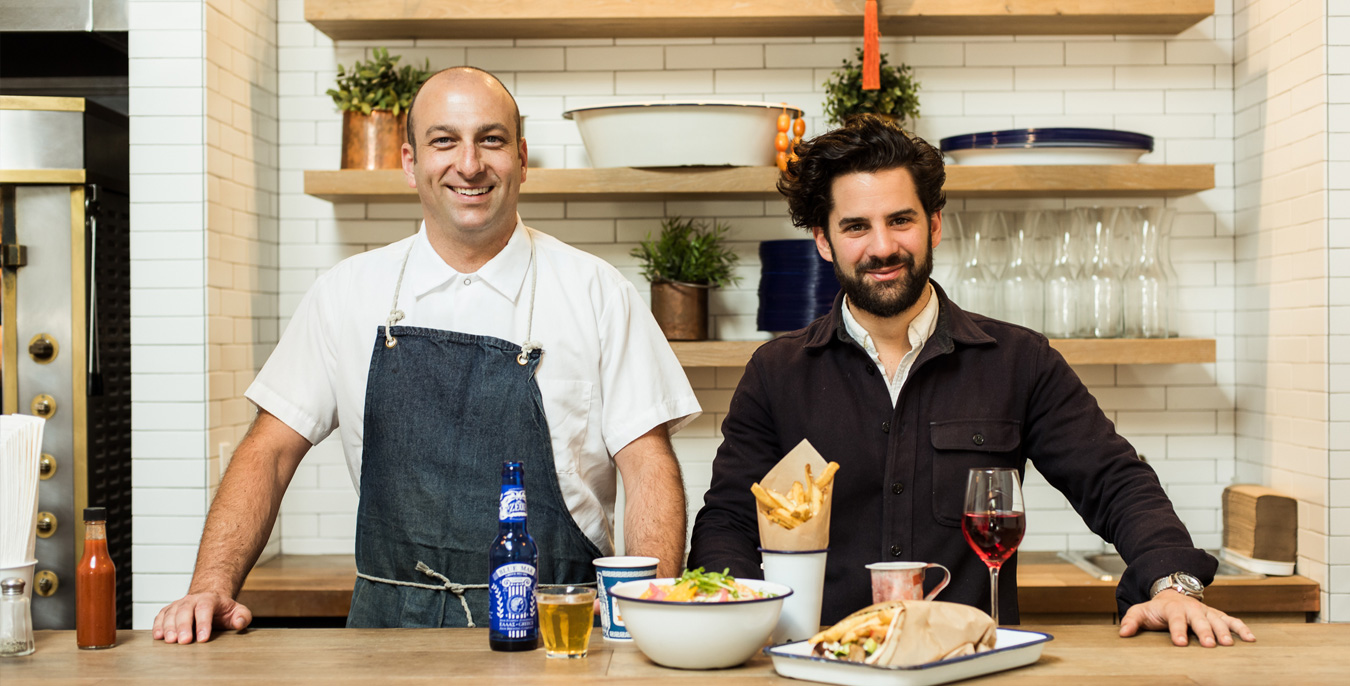

Our comments section is for members only.
Join today to gain exclusive access.